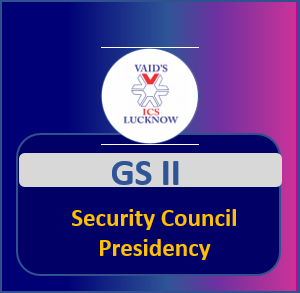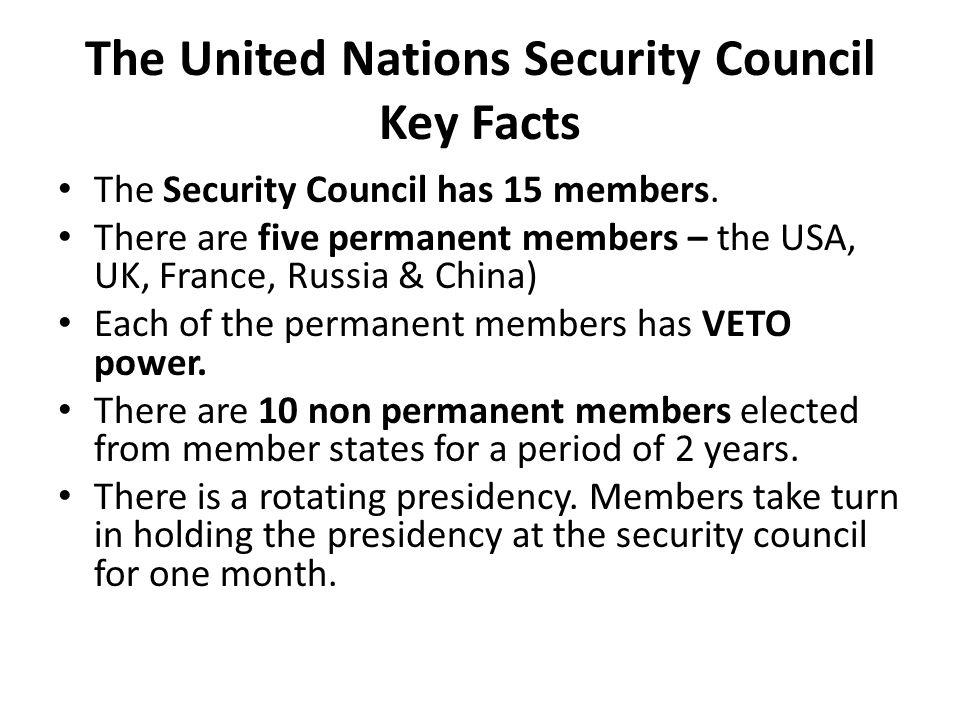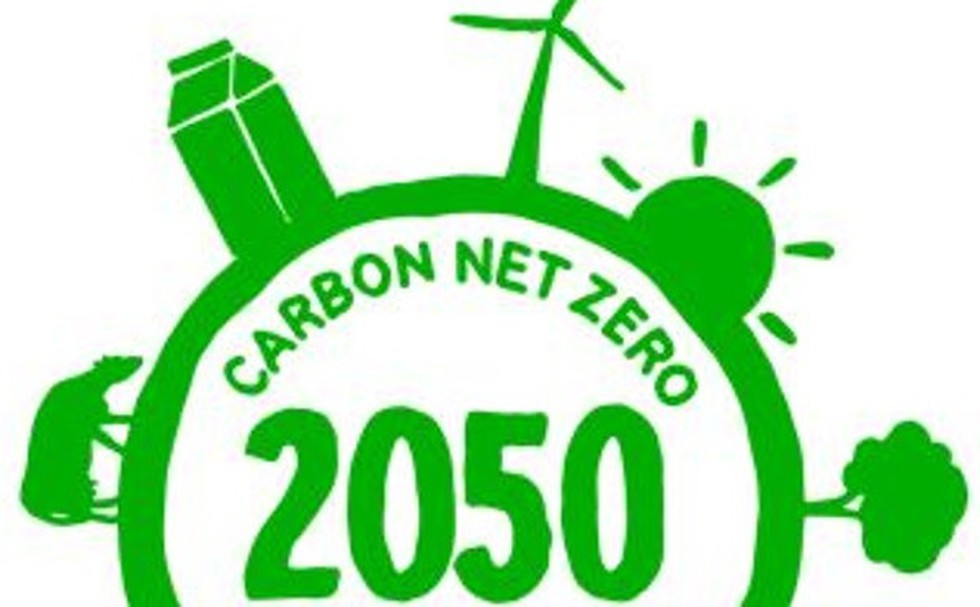CURRENT AFFAIRS
Get the most updated and recent current affair content on Padhaikaro.com
Security Council Presidency
- Vaid's ICS, Lucknow
- 04, Aug 2021

Why in News?
India has assumed the rotating Presidency of the United Nations Security Council for the month of August.
- This is India’s tenth tenure.
- This is also India’s first presidency in the UNSC during its 2021-22 tenure as a non-permanent member of the UNSC
About Security Council Presidency:
- The presidency of the Council is held by each of the members in turn for one month, following the English alphabetical order of the Member States names.
- It rotates among the 15 member-states of the council monthly.
- The head of the country’s delegation is known as the President of the United Nations Security Council.
- The president serves to coordinate actions of the council, decide policy disputes, and sometimes functions as a diplomat or intermediary between conflicting groups.
About UNSC:
- The United Nations Charter established six main organs of the United Nations, including the United Nations Security Council (UNSC).
- The Security Council has the power to make decisions that member states are then obligated to implement under the Charter.
- Permanent and Non-Permanent Members: The UNSC is composed of 15 members, 5 permanent and 10 non-permanent.
- Each year, the General Assembly elects five non-permanent members for a two-year term.
Proposed UNSC reforms:
Reform of the United Nations Security Council (UNSC) encompasses five key issues: categories of membership, the question of the veto held by the five permanent members, regional representation, the size of an enlarged Council and its working methods, and the Security Council-General Assembly relationship.
Case for Permanent Membership of India in UNSC:
- India is the founding member of the UN.
- Most significantly, India has almost twice the number of peacekeepers deployed on the ground than by P5 countries.
- India is also the largest democracy and second-most populous country.
- India’s acquired status of a Nuclear Weapons State (NWS) in May 1998 also makes India a natural claimant as a permanent member similar to the existing permanent members who are all Nuclear Weapon States.
- India is the undisputed leader of the Third world countries, as reflected by its leadership role in Non-Aligned Movement and G-77 grouping.

The Security Council has 15 members. There are five permanent members – the USA, UK, France, Russia & China) Each of the permanent members has VETO power. There are 10 non permanent members elected from member states for a period of 2 years. There is a rotating presidency. Members take turn in holding the presidency at the security council for one month.
Facts For Prelims
NET ZERO’ CARBON TARGETS
Independent charitable organization Oxfam has said that ‘net zero’ carbon targets that many countries have announced may be a “dangerous distraction” from the priority of cutting carbon emissions.
What the report says?
- “Land-hungry ‘net zero’ schemes could force an 80 per cent rise in global food prices and more hunger while allowing rich nations and corporates to continue “dirty business-as-usual,” Oxfam has said in a new report titled “Tightening the Net”.
- The report says that if the challenge of change is tackled only by way of planting more trees, then about 6 billion hectares of new forests would be required to remove the world’s excess carbon emissions by the year 2050.

What does net-zero mean?
- Net-zero, which is also referred to as carbon-neutrality, does not mean that a country would bring down its emissions to zero.
- That would be gross-zero, which means reaching a state where there are no emissions at all, a scenario hard to comprehend.
- Therefore, net-zero is a state in which a country’s emissions are compensated by absorption and removal of greenhouse gases from the atmosphere.
- One way by which carbon can be absorbed is by creating carbon sinks.